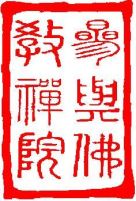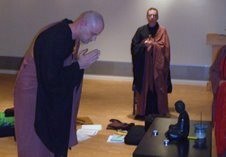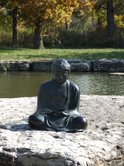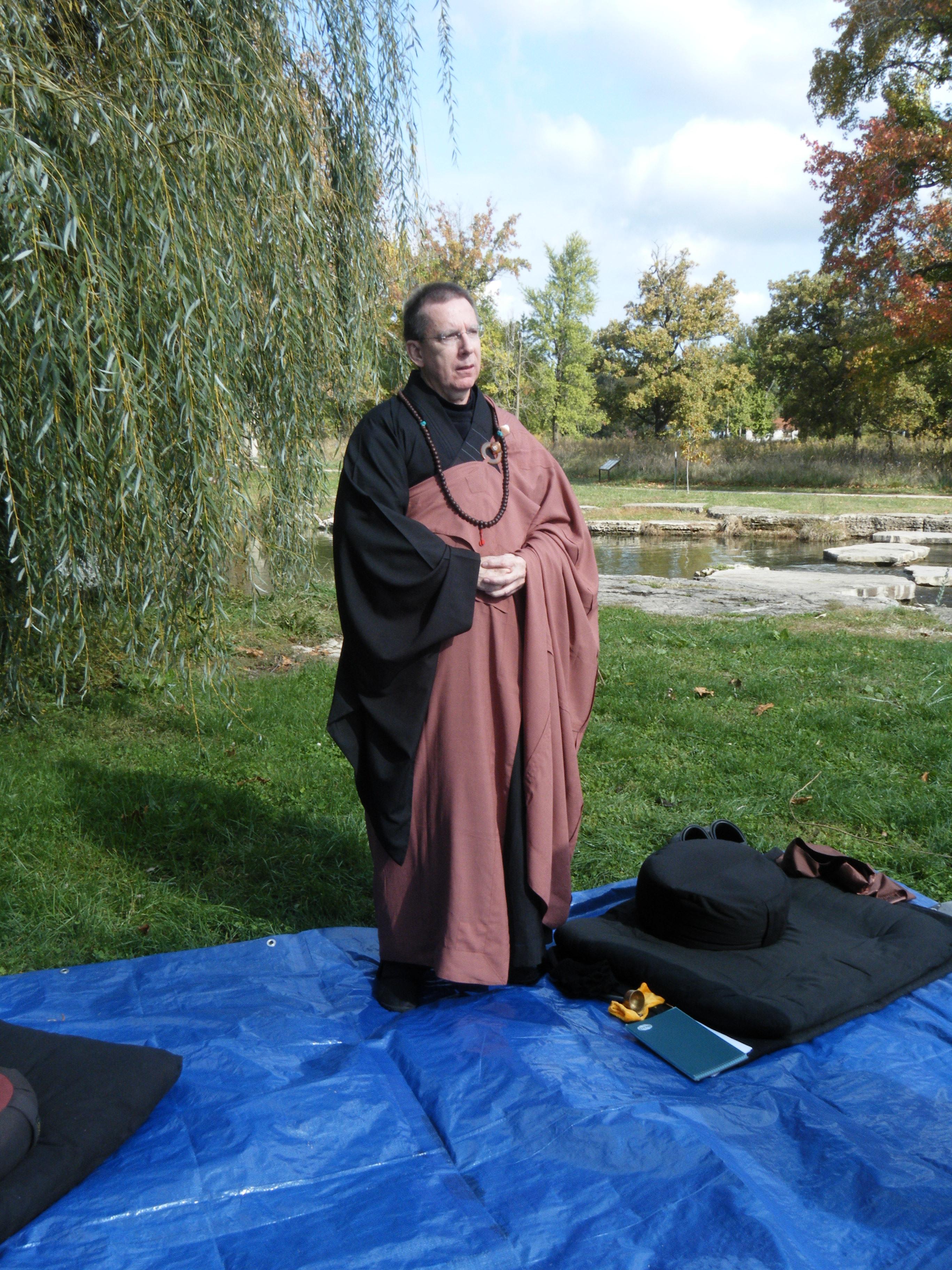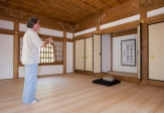By: David Shen-Xi Sensei
When our practice has cultivated a deep sense of connectiveness with how we think and behave, we are positioned to understand the importance of experiencing each situation we encounter as being interpreted by our dispositions (how we are). It is therefore vital that we develop trains of thought that define our worldview in order to be ready when situations arise demanding our involvement and perfected insight. This is why we study and train our body-mind in meditation. While we go through our daily routines, we practice in order to be open for accepting whatever situation arises conditioned by universal realities. The reality of the human condition is such that we react from established conditional expectations, and not from nowhere.
When we observe Zen masters it is easy to consider that their responsive actions are spontaneous, but what we are really observing is a highly cultivated and mature set of dispositions that have been honed over decades of practice and keen observance of the world around them. Their training has been internalized and embodies the “Buddha within.” When it appears that someone’s actions seem to be spontaneous, we know from contemporary scientific research and controlled observation that genuine spontaneity is a result of dedicated training and internalized skillful means that is being reflected in their actions.
Each situation is unique and arises from its own historical causal-chain. There is no cookie cutter aspect to how we should engage with the world around us. This is the foundation to Buddhist ethics. Each situation should be considered and responded to situationally. My root teacher, Dr. Eubanks Sensei, reflected on this reality and said, “As contingently arisen human beings, we have a specific biopsychosocial blueprint from which we must work, and effective engagement with our world arises from an acute recognition of how we are.” We can not escape this reality of what it means to be human. This is why it is vital for us to understand why we react the way we do, and refine our behavior to align with productive actions that promotes positive change. If we don’t learn this important lesson we will continually fall short of our intentional expectation.
An authentic real-life Buddha is someone who values the reality of their causal Universe and applies these lessons in every day life situations that reflects a strong recognition of what the social-self is all about. This recognition values the connection of the self with others and fuels a life of altruistic positive engagement. When we become aware of how causality is interwoven throughout each situation we encounter, we begin to know what drives our daily success. This daily success arises from a routine of thoughtful preparedness. In order to achieve this state of being it is important to cultivate a practice of readiness, and this can be best achieved by using the elements in the “Buddhist toolbox” as my dharma brother, Wayne Hughes Sensei, would say. We learn to develop dispositions for daily success. Like those Zen masters, we too can become relaxed as we engage the world around us as we trod our daily routines. When our normal disposition is calm and mindful we get things done without creating anxiety and unsatisfactoriness. Buddhism is all about subtraction, not addition. We work to subtract all those characteristics that work against liberation from suffering that we have adopted over a lifetime of adding on to what we think we want and need, to a life driven by a more simple way of engaging those around us. It is easy when we get our self out of the way. And when we achieve this state of practice, we reflect the Buddha within.
🙏🏼
©️ OEB 2019


